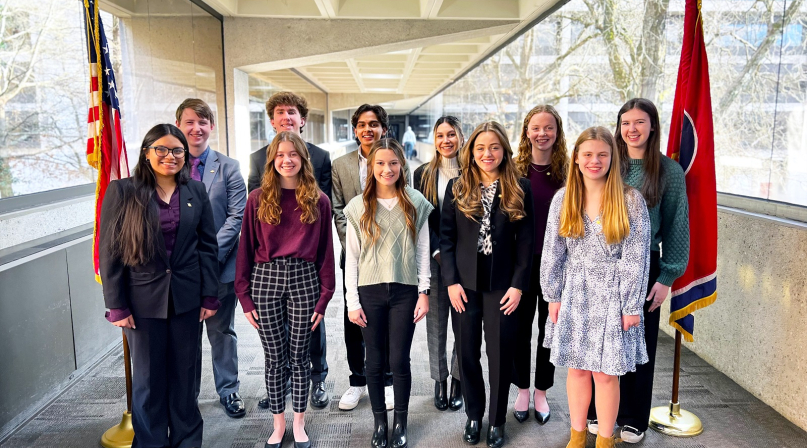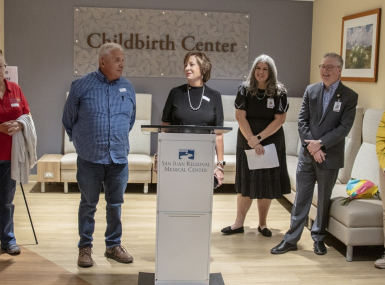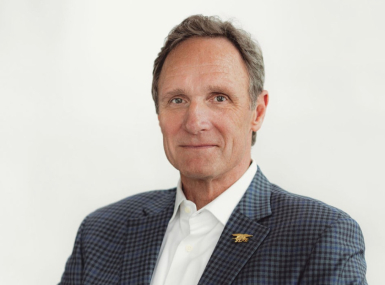High school students step into county commissioners’ shoes

Key Takeaways
Eleven Knox County, Tenn. high-school students are serving as “junior commissioners” in a county effort to get the next generation excited about local government.
The three-month program will give teens the opportunity to sit in on county board meetings, including a zoning hearing regarding land use policies; participate in direct constituent services such as town halls and take part in a mock session where they’ll get to make motions, argue points and vote, according to Knox County Commissioner Larsen Jay, who planned the concept.
“What we’re trying to do is break down the barrier of knowing what your local officials do, and if we can kind of give them a taste for what public service looks like, then I think the politics won’t seem as scary or unobtainable,” Jay said.
A 2022 study conducted by think tank Next100 found that respondents ages 18-36 viewed a petition as having more impact than working in government. Jay said he thinks the disconnect comes from a lack of understanding about what local government does. He hopes junior commissioners can bridge that gap.
“When I have engaged directly with the next generation of leaders, those [high school] juniors and seniors who are figuring out who they are in the world and what impact they’re going to make, they’re interested, they’re fascinated, they want to know how sausage is made and they want to get engaged,” Jay said.
“When you connect with them and that light bulb goes off and they realize, ‘Wait a second, this is my elected official standing here right in front of me — I have direct access to them,’ they realize that you can start nudging your community right here, right now, instead of waiting for some sort of big national ‘whatever’ that they’re never going to be able to touch on a scale of Washington and that sort of top-tier politics.”
Jay said he’s wanted to create something that would connect youth to local politics ever since he visited a local high school to learn more about its robotics program and ended up speaking to students about his role as a county commissioner.
“They started asking me... ‘What do you do? How do you do it? What is a commissioner? Why do I care?’ And I had a couple of dialogues where you can see the interest and you can see it wasn’t like, ‘Here’s a boring politician cutting a ribbon, here’s a guy who’s actually taking an interest in us,’ and I just kept thinking, ‘How do you engage that?’”
While a loose idea to educate young people on the inner workings of local government had already been planted, it was low voter turnout in 2022 at the local and state level that propelled the Junior Commission into reality, Jay said.
“I got so frustrated and went, ‘Wait a second, less people are voting, less people are getting involved, less people want to run for office and we have a really divided, jaded community about civic leadership, which is really public service at its core, so forget all the people who are not getting engaged, tell me who is,’” Jay said. “And that’s when I just sort of remembered, you’ve got this huge population of young people who, it’s not about commodities and money and sort of superficial things — it’s impact.
“They want to know the impact that they’re going to make, and they’re going to go work for people who have an impact in the community, they’re going to go follow and support people who are going to actually do something.”
The choice to only open the program to high school juniors and seniors was an intentional one, according to Jay.
“It’s an age when they’re thinking, ‘What am I going to do in the world? What does it look like after high school?’” he said. “Obviously, it could be college, career, military, but they’re at a point when they’re starting to understand that there is a government around them, a society — that they fit in a community. We really felt like anything sophomore and below, your world is still pretty much taken care of by your family — there’s not a lot of interaction.
“You’re not driving yet, so you don’t really understand driving laws, you’re not really paying for stuff yet, so you don’t really understand taxes, so it was kind of an age when we felt like they were actually having engagement with their community and could understand that this stuff doesn’t just happen, it happens because of the glue of government.”
To get the word out about the program, the Board of Commissioners partnered with Knox County schools, connecting with high school teachers, principals and guidance counselors and expanded their reach through local newspapers, a radio station and even went old-school with flyers.
Applicants had to share something about themselves and answer why they want to be a junior commissioner, why they think local government is important and were asked to identify an issue or need in their community and provide an idea to address it. Receiving around 70 applications with only 11 slots, each county commissioner had to choose one applicant who lives in their district to be a junior commissioner.
Knox County Commission Chair Courtney Durrett chose Gabriela Sánchez Benítez, a Fulton High School junior, to mentor. Durrett said Benítez’s answer regarding a Knox County issue and proposed solution is what made her stand out.
“It was incredibly well-written, she was very thoughtful,” Durrett said. “She went into very intricate detail of how to address the problem that she gave, which actually was a lack of a relationship [between the] government and the community — I liked that because it really hit home with the whole purpose of doing this program.”
Benítez’s proposed solution was strengthening the bond between community and government through funding more events that aren’t related to party affiliation and are instead an opportunity for residents to become educated on what resources local government can offer.
Durrett said she’s excited to be involved in the Junior Commission program and that she’s seen firsthand the need for more education about local government for youth through her previous job as a high school government teacher.
“I know personally the disconnect that our students have with local government and the basic apathy for it,” Durrett said.
“It’s all this attention on national-level politics, but especially in education, there’s little to no focus on local government, so this program will really bring awareness to exactly how important local government is to their daily lives and how it affects them.”
Anand Patel, a junior at Farragut High School, will work under Commissioner John Schoonmaker. Patel said he’s been interested in politics and debate for as long as he can remember and is looking forward to learning more about everything that goes into being a county commissioner.
“I’m really excited to get to be a part of it, because I see local politics as just as important as national and global politics — it affects our day-to-day lives more,” he said.
Attachments
Related News

Now I know I can adapt my communication style
San Juan County, N.M. Commissioner Terri Fortner spent her career working with people one-on-one, but she overcame hangups about online communication when the pandemic forced her onto video calls when she first took office.

County service meets a veteran’s need for purpose in Spotsylvania County, Virginia
After Drew Mullins transitioned from a high-performance lifestyle in the military, he found the environment and purpose he sought when he took office in his county.
Now I know that solid waste is complicated
Custer County, Idaho Commissioner Will Naillon says solid waste removal is "one of the things that people often take for granted until it’s their job to make sure it happens... that’s the story of being a county commissioner."
